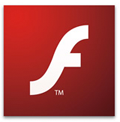 So it’s official: Adobe is ceasing development of Flash Player for phones and tablets:
So it’s official: Adobe is ceasing development of Flash Player for phones and tablets:
Over the past two years, we’ve delivered Flash Player for mobile browsers and brought the full expressiveness of the web to many mobile devices.
However, HTML5 is now universally supported on major mobile devices, in some cases exclusively. This makes HTML5 the best solution for creating and deploying content in the browser across mobile platforms. We are excited about this, and will continue our work with key players in the HTML community, including Google, Apple, Microsoft and RIM, to drive HTML5 innovation they can use to advance their mobile browsers.
Our future work with Flash on mobile devices will be focused on enabling Flash developers to package native apps with Adobe AIR for all the major app stores. We will no longer continue to develop Flash Player in the browser to work with new mobile device configurations (chipset, browser, OS version, etc.) following the upcoming release of Flash Player 11.1 for Android and BlackBerry PlayBook. We will of course continue to provide critical bug fixes and security updates for existing device configurations. We will also allow our source code licensees to continue working on and release their own implementations.
Yup, Adobe–the company that has been maintaining that the Web isn’t really the Web without Flash–just said that HTML5 is “the best solution for creating and deploying content in the browser across mobile platforms.” That’s true. I didn’t expect it to concede the point just yet, but I’m glad it did.




